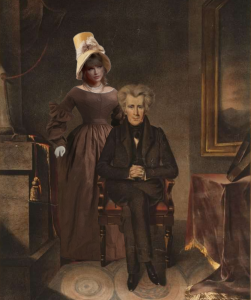
Since taking off on a solo career more than two decades ago, former Smiths’ singer Morrissey has adopted the gently mocking tone of his former band’s work wholesale and hurled it further into exuberance, complete with Brit wit song titles (here we get “It’s Not Your Birthday Anymore” and “One Day Goodbye Will Be Farewell”).
It’s sometimes hard to differentiate Moz’s classic music with The Smiths and the middling stuff he’s produced on his own, but the chief result of his career – like any other – is learning what he’s good at.
This manifests itself in a more declarative approach; Morrissey doesn’t mope about failures, he revels in them (and has exceedingly done so since his first solo album, appropriately titled “Viva Hate”).
His new record, “Years of Refusal,” isn’t one of those failures.
The man must have taken a self-improvement course or something, because absent are his mid-period bad-boy affectations and the syrupy histrionics that marred 2006’s “Ringleader of the Tormentors.”
He’s also reserving politics for his interviews, and with no “National Front Disco” or “America Is Not The World,” conservative fans can relax and savor the happier topics of emotional disconnects between individuals.
To quote a Smiths song, “Years of Refusal” starts with a rush and a push.
“It’s a miracle I even made it this far,” he muses from the top on the opening track, “Something Is Squeezing My Skull.” Over a kinetic fury of guitars, Moz repeats “Don’t give any more” so fast it sounds like yodeling. He’s just trying to keep up with his band, a taut group of young’uns who exercise an ungodly amount of restraint and still play like the world is ending.
Still, this tendency to slip into vocal silliness is what threatens to pull “Refusal” down from status as an essential Morrissey album.
It doesn’t happen.
“Years of Refusal” is probably the man’s best effort since the unfairly maligned detour, “Southpaw Grammar.”
There’s a bit of neo-Wilco doodling after a token ballad on side 2 – the vinyl copy was cheaper – but by and large, “Refusal” is Morrissey playing it straightforward.
That’s not to say “Refusal” lacks variety. The world may be full of crashing bores, as Morrissey wrote, but he’s not one of them.
The song, “When Last I Spoke To Carol,” kicks off with some tinny jangle straight out of Manchester, 1985, and springs for a mariachi horn section soon after.
Ten tracks is a weak length for an album, so the sprightly “That’s How People Grow Up” and the brutally honest “All You Need Is Me” are added here for longtime fans who didn’t give up part of their severance pay for last year’s frivolous “Greatest Hits.”
Like Roy Orbison or Bryan Ferry of Roxy Music, Morrissey was always a class act. And class acts don’t rely on trends.
The choruses employ rich, sweet melodies (witness the military-march “Mama Lay Softly on the Riverbed”) rarely present in post-Beatles rock – this is the stuff of 1956 high school dances and dates to the local diner for 10-cent shakes.
Mix this with the ’80s throwbacks and, if it weren’t so cliche, you could even call it timeless.
It’s not called “Years of Refusal” for nothing.
While other bands are tooling with current trends in a vain attempt to sound new, it’s exactly said refusal to get with the times that makes Moz so reliably compelling.
Underscoring an already-strong collection, “You Were Good In Your Time” is ending-credits melodrama, and seven weeks into the year, “I’m Throwing My Arms Around Paris” is already a top contender for Chorus of the Year.
In a world gone under, Morrissey is using the media to spew his anger at broken democracies, but he’ll always have Paris when the camera flashes fade.
Morrissey’s commanding tenor still hits all the marks. It’s elegant but fierce, somehow managing to sound like a therapist and a dictator at the same time.
The pipes are in top shape and that patented Teutonic moan sours the more bright pop songs on “Refusal,” which veer dangerously close to nondescript AOR territory when Moz and his co-writers fall asleep at the wheel.
“Years of Refusal” is also, like most of his solo albums, painfully representative. To the point of predictability, it’s all here: the falsetto, the amped up guitars and the mixed-down drums. There’s also the required filler: Moz’s “Black Cloud” is just a hair better than Papa Roach’s similarly titled song, and that’s just because Jeff Beck drops in.
He still oscillates wildly (last Smiths quote, promise) between pointing his finger at the unnamed “you” and making a come hither gesture toward that person.
He’ll call them out, as he does on “All You Need” but refuse to let them leave, because he’s a bit needy himself. This very human inconsistency is what makes great relationships fail (Johnny Marr, anyone?), but rough patches and internal struggles have rarely sounded so good to the ears.
If only life were this easy.




